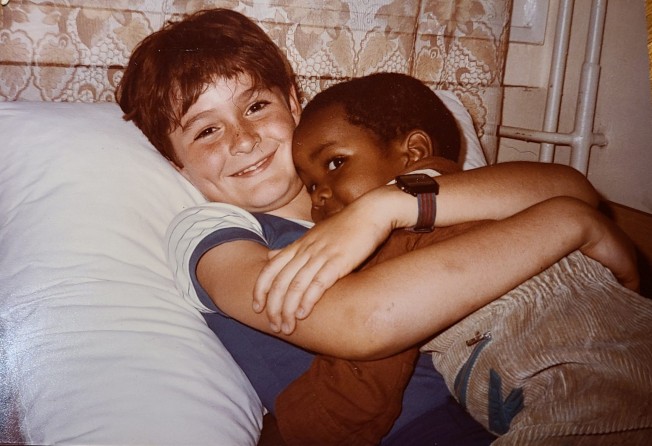
NGO head who got Richard Branson, Ban Ki-moon to live like refugees talks about his family’s charity and having an epiphany in Macedonia
- David Begbie is director of Hong Kong-based non-profit Crossroads Foundation, which matches donations with those in need and runs a student volunteer programme
- His charity’s ‘refugee simulation’, which started as an exercise for Hong Kong CEOs, ran at the World Economic Forum in Davos for over a decade
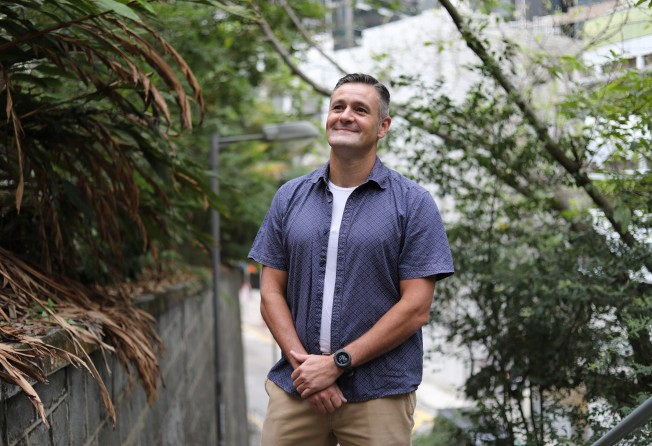
A long way from Oz: I was born in Sydney in 1975. My father was a partner in an accounting firm and my mother was in PR, and they had a very comfortable life. When I was three and my younger brother was one, we moved to the Philippines, where my parents were involved in helping people in need across Asia.
My family did extensive travel to the former Soviet bloc and I spent a lot of time as a little kid in Romania, Hungary, Poland and Czechoslovakia, attached to a medical team, so I saw a lot of people in need. My mother’s conviction was that no hands are too small to serve and, aged five, I remember helping put together packages that were sent to kids in the former Soviet bloc.
We came to Hong Kong in 1986 and lived in Silvermine Bay (on Lantau) because it was the cheapest rent we could find. My parents’ plan was to start a small business that would generate revenue to permit us to serve. It was a simple import-export business with a lot of the people we’d met in Eastern Europe. My brother and I went to HKIS (Hong Kong International School), which was very gracious in facilitating our education. Our meals were very simple; we had a lot of congee growing up.
Shifting gear: My parents’ business didn’t work out and, in 1992, we ended up as a family with about US$10. Although the business wasn’t flourishing, the objective of serving NGOs was and the board (of the business) suggested we look at a staffing model where people sponsor people to come and volunteer.

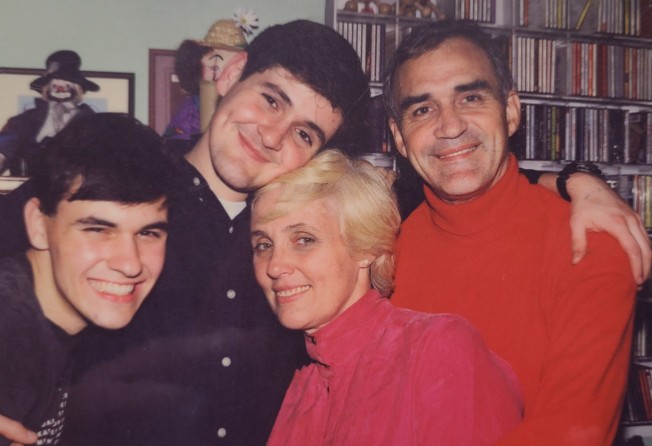
In 1995, my parents got a call asking for support after the flood in Liaoning province. The woman said it was the worst flood in 100 years and 2 million people had lost everything and urgently needed clothing. On a visit to my godmother, at the Adventist Hospital, my mother overheard two women in the bookstore. One woman said she had lots of things she wanted to give to poor people, but she didn’t know anyone who was poor. My mother said, “I’m sorry to interrupt, but we know 2 million people who are poor.”
Between the two of them, these ladies had 19 cartons of clothing. We sent them off to Liaoning province. It was the year after I’d graduated from HKIS and we still had contacts with the school, so we did a drive there and collected 72 boxes of clothing. Then a businessman who was a friend of my dad said he had 136 boxes, and then resources just began to pour in. It was extraordinary the way the offers matched the requests – a bank would call offering 500 computers and then a school in the Philippines would call and say they had no computers.
At a crossroads: The first warehouse was my parents’ bedroom. When that was full, we used a spare classroom at the Australian International School. When we outgrew that, we approached the government, which gave us space in the former British Military Hospital in Jordan and then the government let us move to Kai Tak. A lot of volunteers came over on a gap year. My bedroom became the guys’ dorm and our spare bedroom became the girls’ dorm. Then it expanded from our house to another house in Silvermine Bay. It ended up that we had 35 apartments – monthly rentals – scattered over Silvermine Bay.
By this time, we’d moved to Kai Tak and each morning the team would assemble at the Mui Wo ferry pier and we’d travel there together. As the scale grew, we recognised we had to officialise it a bit more and it was registered in 1995 as Crossroads. We called it Crossroads because we wanted to connect those who had with those in need, we thought we could be that crossroads for resources.
Mc and Chinese: When I was 17, to improve my Mandarin I spent a summer at McDonald’s in Beijing. It was the first and the biggest McDonald’s in China, serving 18,000 customers on a weekday and 24,000 a day on weekends. It really helped improve my Mandarin and when I finished high school I was hired as an assistant Chinese teacher at HKIS to help ignite in kids the passion I had for Chinese. The money I earned helped fund my university studies.
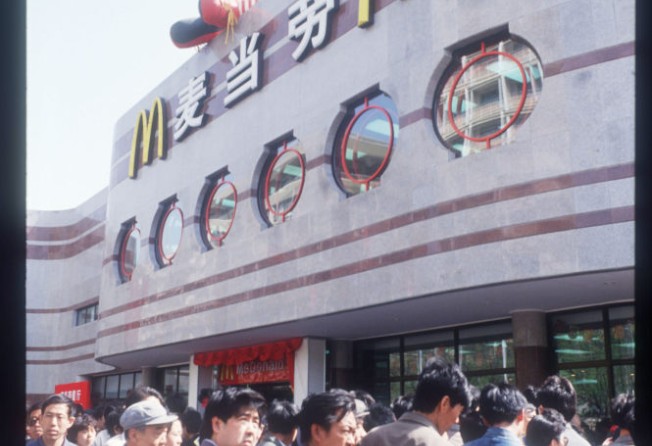
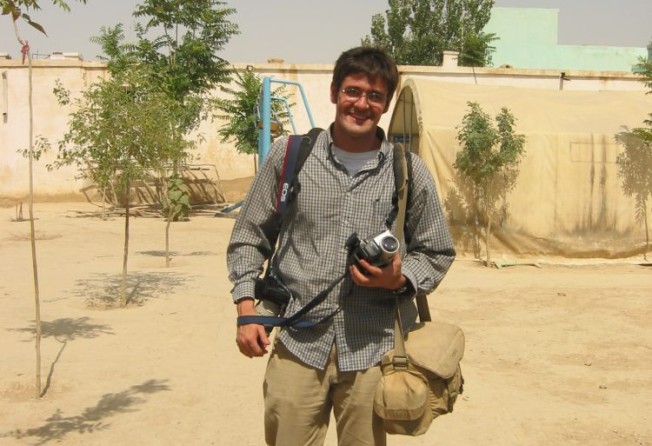
I did my undergraduate degree in East Asian studies at Wittenberg University, in Ohio, in the United States. It was a four-year course, three years in Ohio and a year in Harbin, in China’s Heilongjiang province, as an exchange student. It was minus 30 degrees Celsius (minus 22 degrees Fahrenheit) and my classroom had virtually no heating. We’d be sent into the hallways every half-hour to run back and forth otherwise we couldn’t turn the pages of our textbooks. In the university holidays, summer and Christmas, I’d come back to Hong Kong and serve, helping my parents doing pickups from The Peak and the like.
Signed up: When I graduated, I came back to Hong Kong and worked with Crossroads for two years. I began by doing follow-up trips to the places we’d sent shipments – Bosnia, Croatia and Macedonia. At a centre in Macedonia that looked after people with cleft palates all the way to those with extreme cognitive and physical challenges, I had an experience I’ll never forget. I looked into the eyes of a man who had the same features as my father and thought, “If this man was my father, what would I not do? How would I not care and serve?” During that trip, I became settled in my heart that this was what I was meant to be doing. I came back to Hong Kong and said to my folks, “I’m in.” I didn’t sign up to this work because my parents started it, but because I believe so deeply in why we serve and what we do.
I felt I was ill-prepared to serve Crossroads well, so I went back to university and did a master’s degree in leadership studies with a non-profit focus at Regent University School of Business and Leadership (in Virginia, in the US). I had a yearning to get back to Hong Kong and do what I loved, and did the course in 18 months.
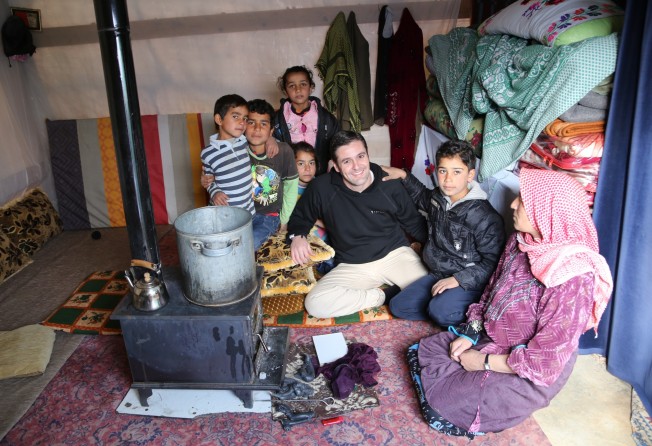
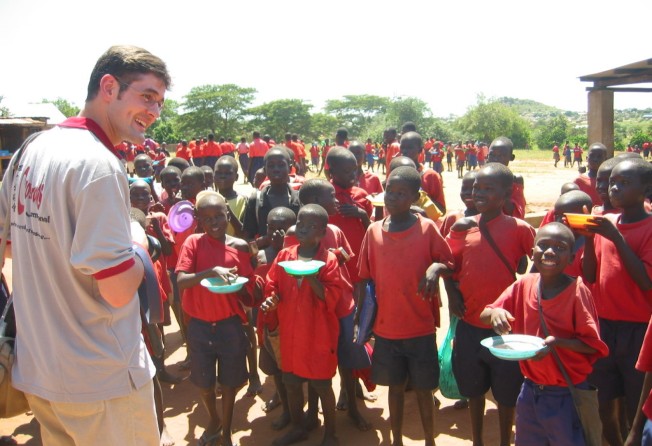
A day in the life of a refugee: When Kai Tak was being torn down for further development, the government, amazingly, gave us permission to move into an old British army base, a Gurkha barracks in Tuen Mun, where we are still. We were initially given 14 acres and moved there in Christmas 2004.
In 2005, to celebrate our 10th anniversary, I suggested we bring Hong Kong CEOs out to our barracks, strip them of their possessions, wallet, phone, and give them hammers, nails and trash, and get them to build slums, sleep on the ground and eat with their hands for a day, to let them feel a tiny bit of what’s it like for the people we serve.
Even before the event was finished, the 15 CEOs were saying it was a profound experience and suggested we make a programme so their staff could also experience it. And then we did it for schools and the phone kept ringing asking for more programmes. The United Nations asked if we could bring our refugee simulation to Davos (in Switzerland, host of the World Economic Forum), so in 2008 we built a refugee simulation in a car park at Davos. Richard Branson came and so did (then UN secretary general) Ban Ki-moon. He also said it was a profound experience and asked us to bring it again and for over a decade we ran simulations at the World Economic Forum.
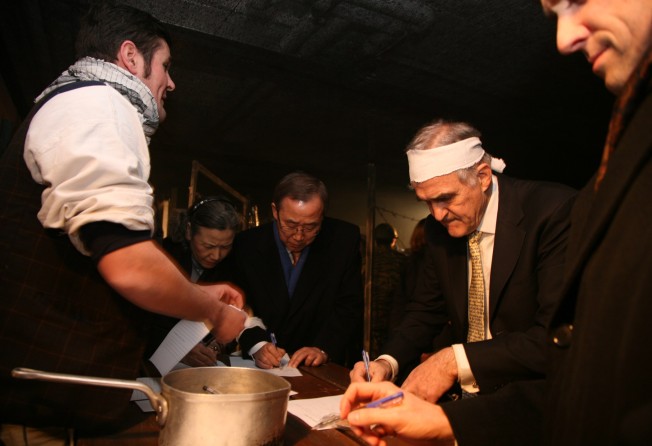
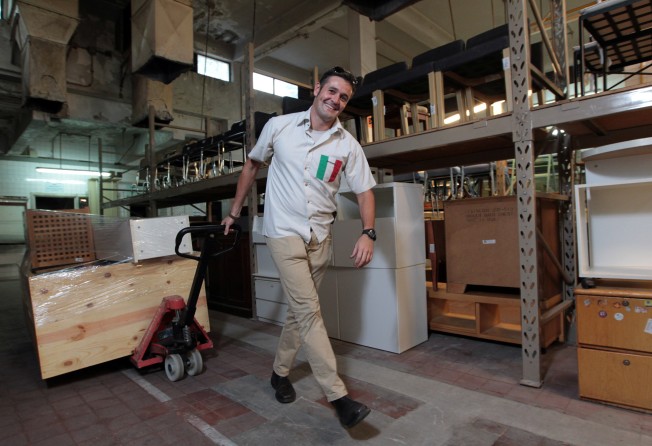
Family business: I met my wife, Liz, at Crossroads – she was the PA to my mother. I first met her when she volunteered in 2001 and I was in the middle of my studies. It wasn’t until later that we got together. She is also from Sydney and was born in the same hospital as I was, and delivered by the same doctor.
We’ve been married 14 years and have two sons, Callum, 11, and Conway, nine – they are extraordinary, I love them to pieces. They were both born in Tuen Mun Hospital. They reflect that true Hong Kong hybrid. I asked my younger son what he wanted for dinner and he said, “I’d like pizza and white rice.” My parents live two floors below me, and have the privilege of seeing their grandchildren grow up, although in the last two years my mother has wrestled with her health.
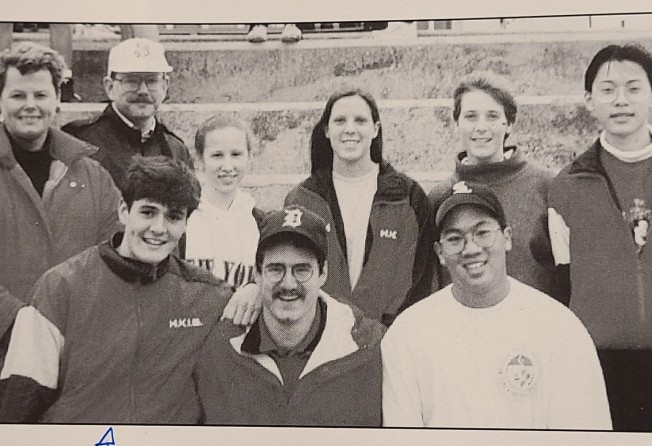
I don’t know how long we’ll be on this site, we’ve been there for 15 years now on a rolling three-month lease for most of that time. We don’t know what the future holds. Hong Kong is still the place that we serve from – over 50 per cent of our resources help NGOs in Hong Kong.